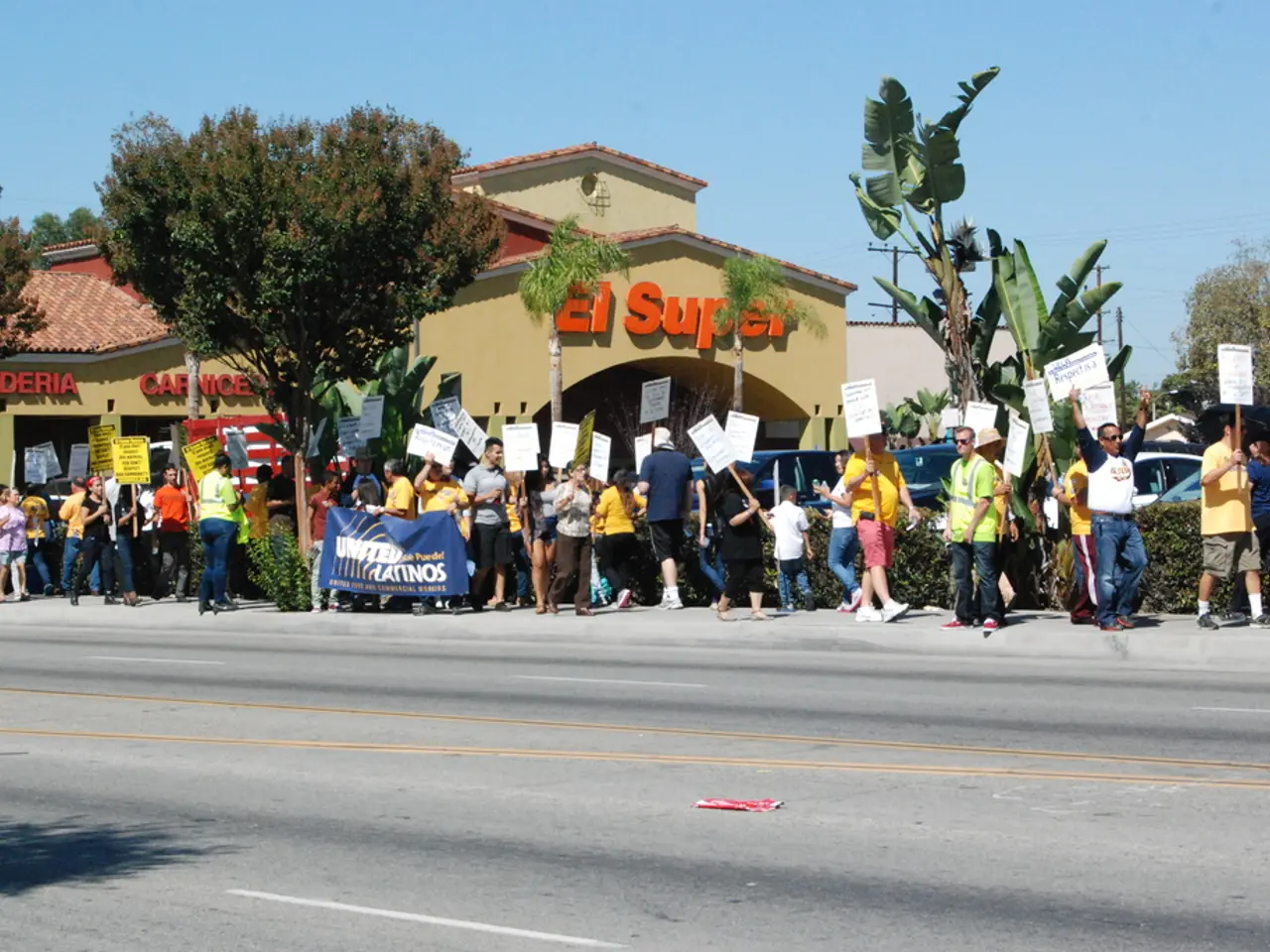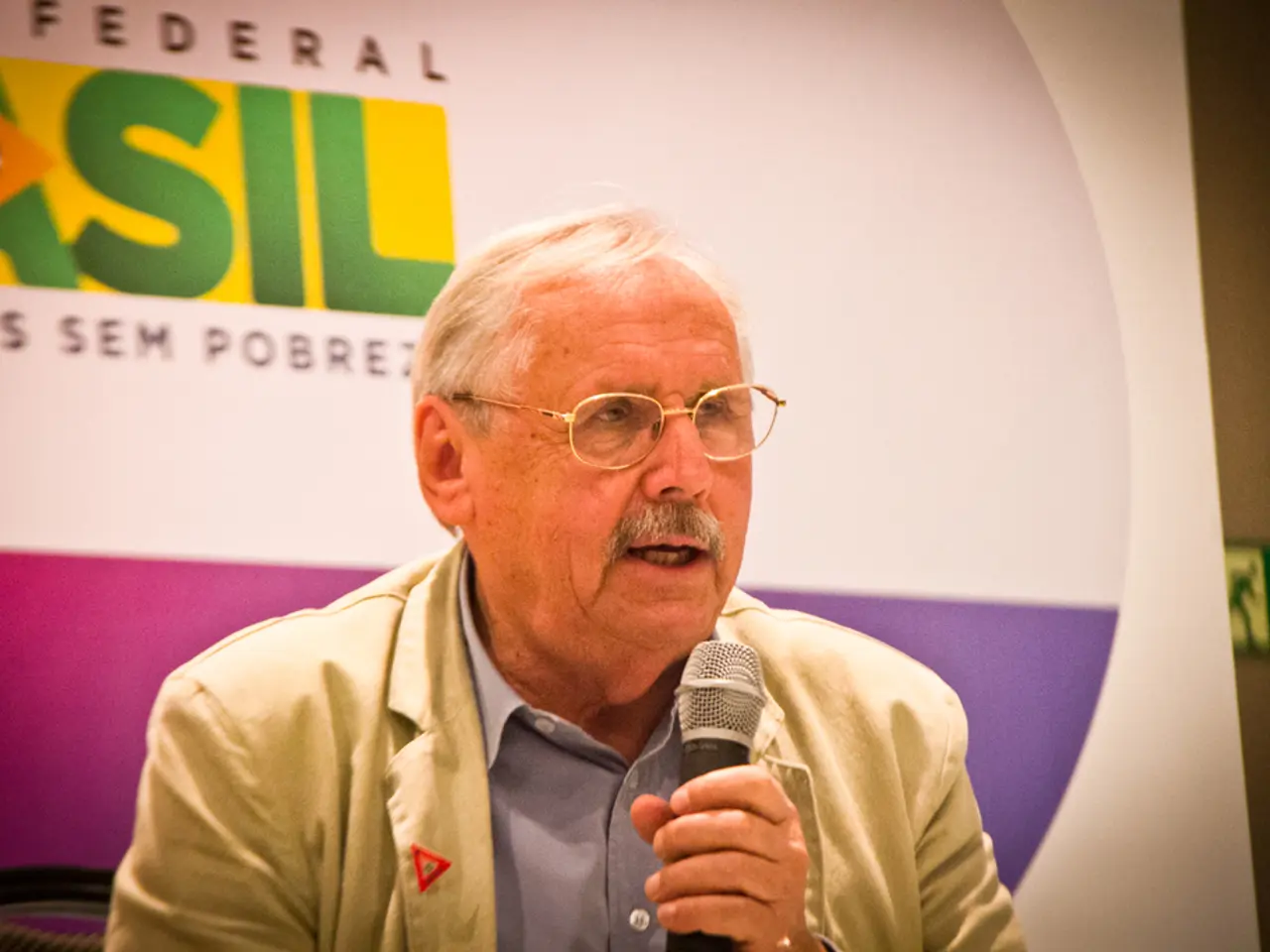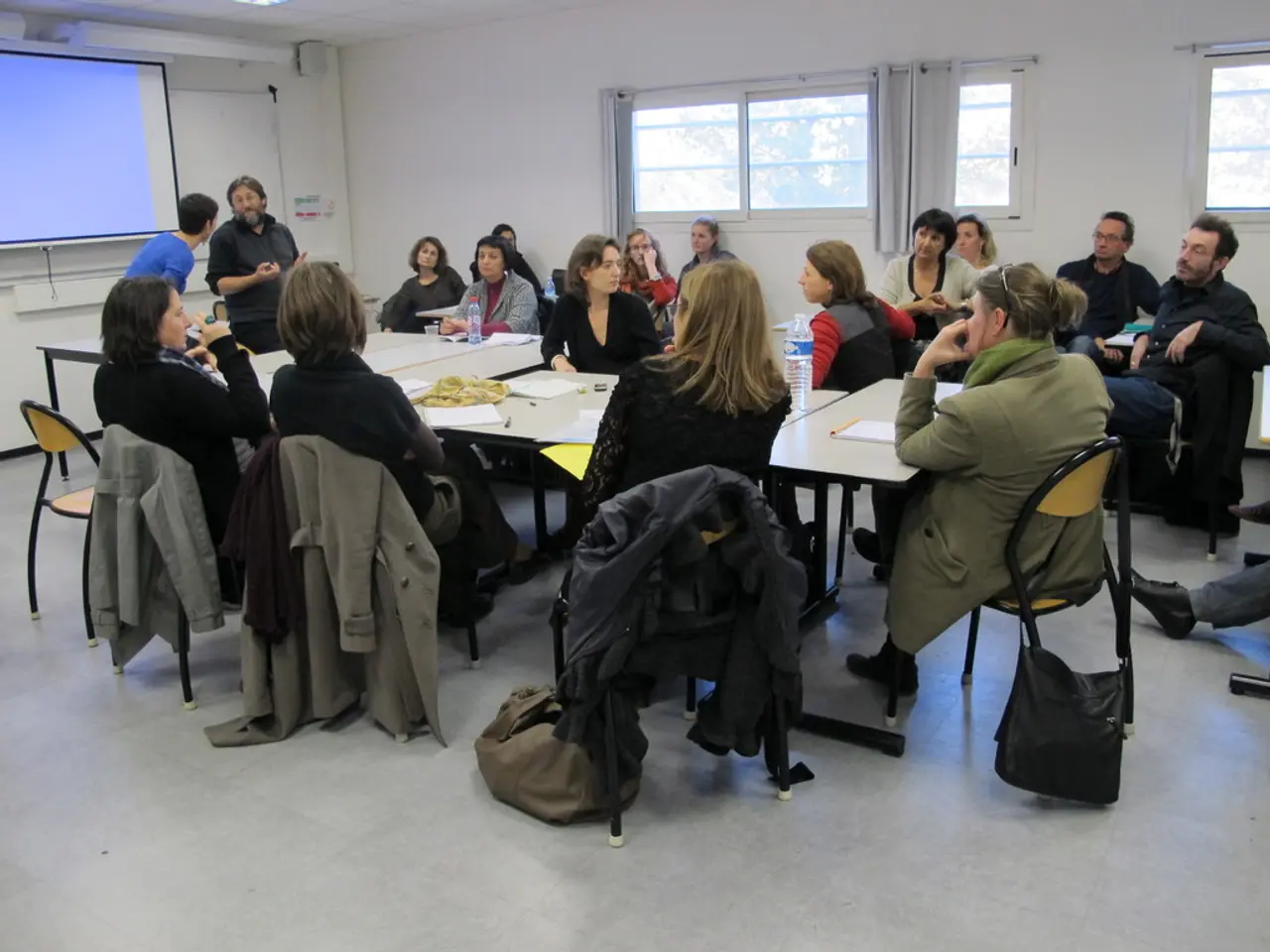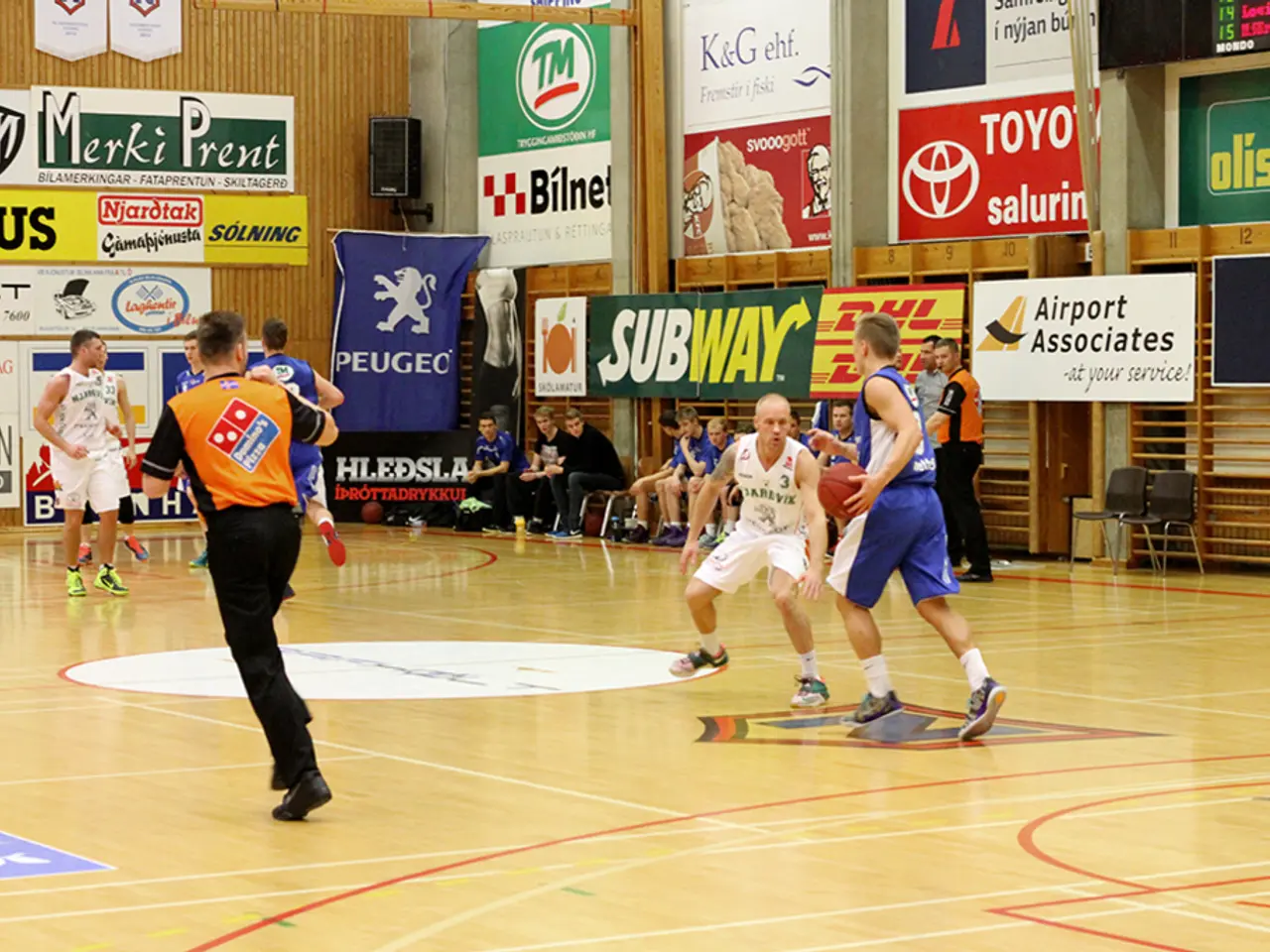Germany's Social Democracy Success Strategy: Redefining Victory for the SPD Party
In the wake of a series of election losses and a trend of decline that has persisted for more than two decades, the Social Democratic Party (SPD) in Germany is embarking on a mission to renew its fundamental programme and redefine its role in the 21st century. The vision aims to create a new kind of social glue, capable of uniting diverse individuals and fostering a sense of unity.
The changing political landscape since the 1990s has made it challenging to identify homogeneous social groups and address them politically. Recognising this, the SPD is determined to develop a vision that skillfully integrates ethos, pathos, and logos, and is grounded in the real lives of ordinary people.
The failure of transactional politics in social democracy is largely attributed to the abandonment of its foundational challenge to neoliberal capitalism. This has led to growing inequality, underfunded social services, and an erosion of the social contract. To counter the advance of populism, social democratic parties must rediscover their purpose by reconnecting with the emotional and moral dimensions of politics.
This entails reasserting a clear ideological challenge to entrenched neoliberalism, emphasizing social justice, equality, public investment (e.g., care and climate action), and a renewed social contract. Beyond purely transactional bargains, the aim is to mobilize shared values and emotional engagement that inspire collective identity and hope, rather than alienation or cynicism.
The new policy orientation must be translated into concrete, comprehensible goals and projects, with a clear timeline that extends beyond a single legislative period. The renewal of social democracy should place special emphasis on municipalities and local communities for direct contact with daily life.
Political allegiances are especially volatile, particularly among young people. The level of political competition has shifted, with right-wing populism increasingly emotionalising politics. A strong mood for change after years of conservative rule, combined with the personal charisma of leaders, played a significant role in electoral victories in the 1990s.
The vision should make it easier to define the party's identity in election campaigns, offering a compelling, coherent narrative for the future. A clear, long-term vision could ease the sometimes tense relationship between governing and party work, transforming it into a productive tension.
Decades of transactional politics have led to a profound loss of identity and trust for social democracy. The future vision should focus on shaping long-term development paths rooted in values, not short-term political tactics. The SPD's crisis in Germany requires a fundamental reorientation, not transactional strategies.
References:
[1] Frye, J. (2017). The Populist Temptation: Economic Grievance and Political Reaction in the Modern ERa. New York: St. Martin's Press.
[2] Mouffe, C. (2018). For a Left Populism. London: Verso Books.
In the pursuit of renewal and redefinition, the SPD in Germany recognizes the need to develop a policy-and-legislation that addresses the shifting political landscape, particularly the rise of populism, within the 21st century's evolving migration policy and general-news landscape. This strategy must go beyond transactional politics, aiming instead for a coherent narrative that fosters emotional and moral engagement among diverse individuals, reasserting social democracy's foundational challenge to neoliberal capitalism.







